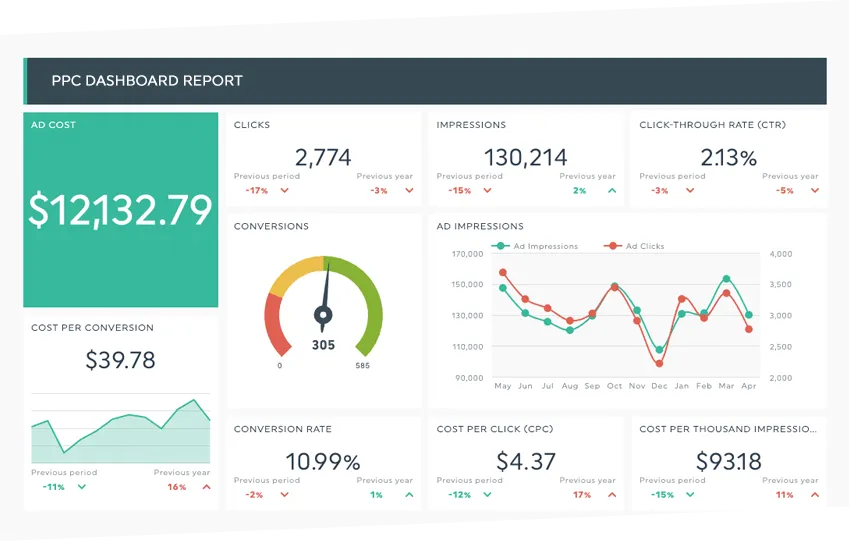
This is a guestpost from DashThis.
Tracking all your different digital marketing strategies is crucial. It enables you to not only know what strategies are working to bring new leads and new sales to your website, but it gives you details on which channels are driving more results, where to invest more, and where to stop wasting your time and money.
There are multiple ways to create a digital marketing dashboard; some will use Excel spreadsheets, PowerPoint, or other presentation tools, while others will rely on Google Analytics or on automated marketing reporting tools. It really depends on your needs; Excel reports might be useful for marketers who need to make very custom calculations about their data, while reporting tools help marketers save time by automating the whole process.
Either way, to track your data efficiently, you need some good digital marketing dashboards that’ll display all the best KPIs in an efficient and clear way; with easy to understand graphs and charts, so that you can see at a glance how your different marketing campaigns and website performance are progressing.
To help you save time and have all the info on hand, here are some digital marketing dashboards you should use to track your performance easily, as well as some KPIs that should be in each of them.
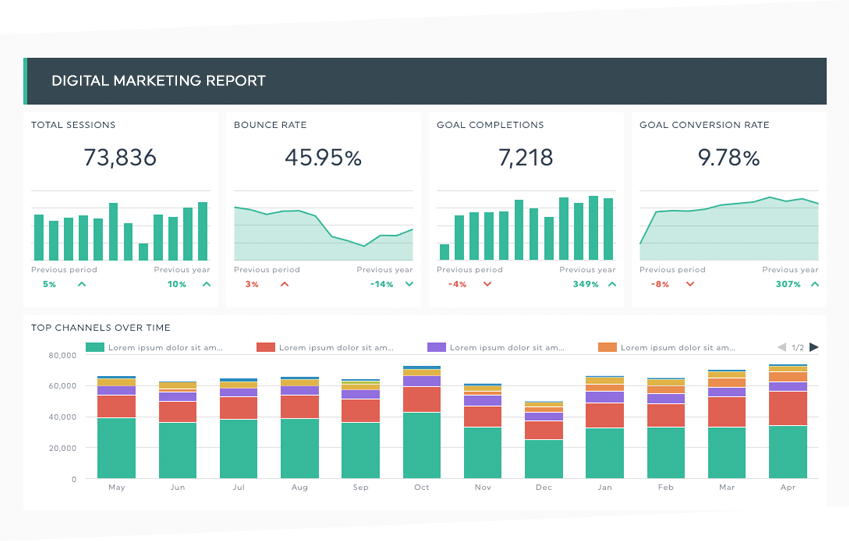
An all-in-one digital marketing dashboard is basically an overview of all your digital marketing strategies and campaigns. It’s not the type of dashboard that will go in depth in the analysis of the data, however it gives a good overview of everything going on.
This type of dashboard can either be used as a summary, alongside other more in-depth dashboards for each of your marketing strategies, or it can be used as an overview of all your most important metrics.
A good all-in-one digital marketing dashboard has all the most important KPIs for each channel and strategy, from social media, to email marketing, PPC and website performance, ideally sectioned for understandability.
Each dashboard is different depending on your goals, but here are some of the most popular KPIs to include in this type of dashboard:
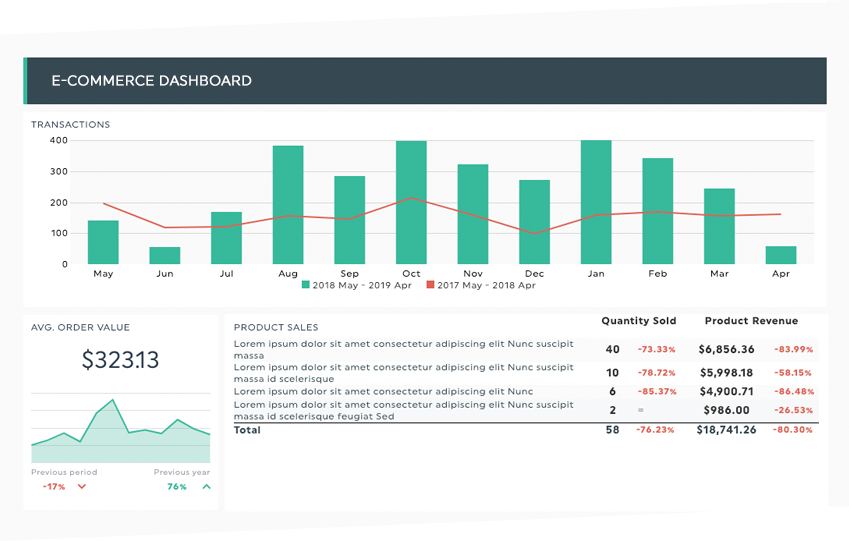
An Ecommerce marketing dashboard will give you all the details you need to track all your ecommerce efforts.
If you have an e-commerce website, you need to track your sales, traffic, bounce rate, revenue, conversion rate, and more, very closely. You have to be able to work on your website and ads if your data indicates a problem, may it be a sudden drop in the sales, ads that don’t convert enough, or a high cart abandonment rate. An Ecommerce marketing dashboard should let you track all this data, and therefore be always aware of your website and sales performance.
Here are some of the most useful KPIs to include:
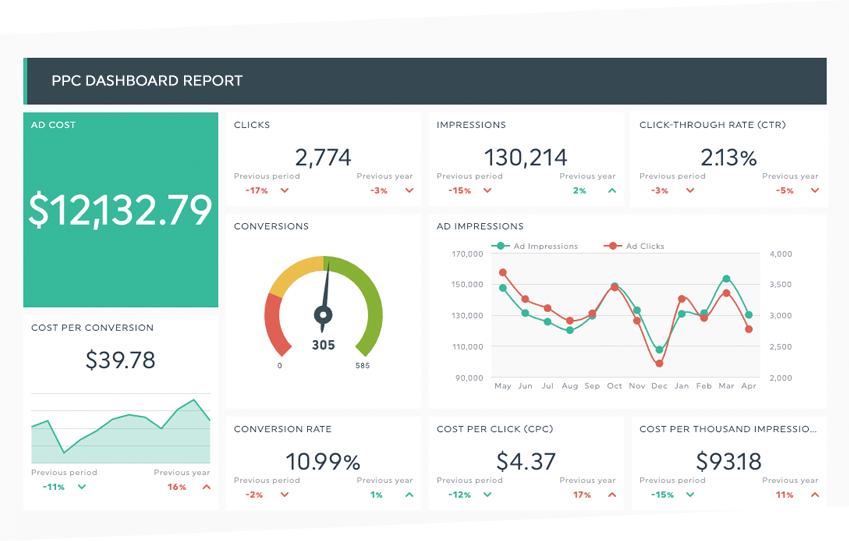
It’s crucial to track your PPC campaigns in order to invest more where it really counts, stop unsuccessful campaigns, and revise them as you go. If you’ve ever made the mistake to start a new PPC campaign and let it run without monitoring it, you know why you need to track them pretty closely! With a PPC marketing dashboard you can see all your paid campaign results at a glance, and make sure everything is running smoothly every single day.
Here are some KPIs you can include:
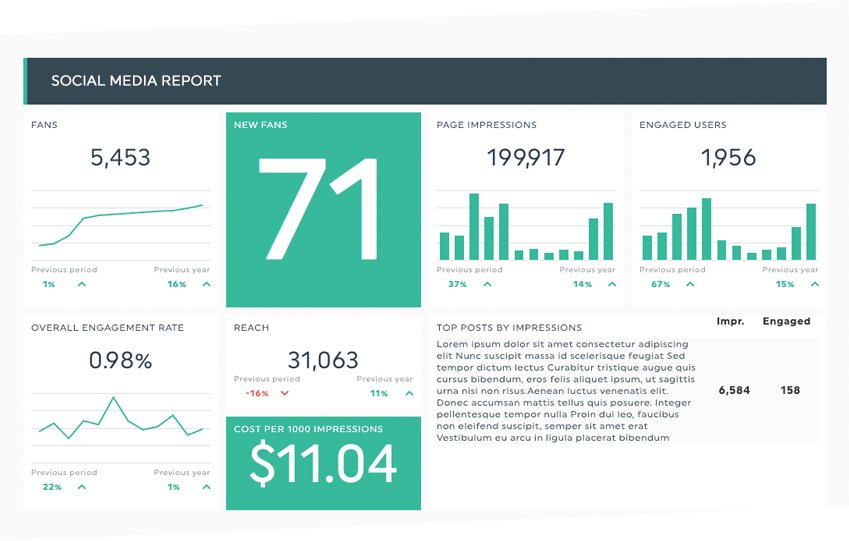
Whether you’re using social media for ads, influencer strategies, content strategies, or else, you need to track your results and make sure your efforts are worth it. A social media marketing dashboard will provide you with all the data related to your social media strategies, may it be your organic results or your social media ad campaigns. Ideally your dashboard should include every social channel you’re using for your strategy; Facebook, Instagram, Twitter, LinkedIn, etc.
Here are the most useful KPIs to include:
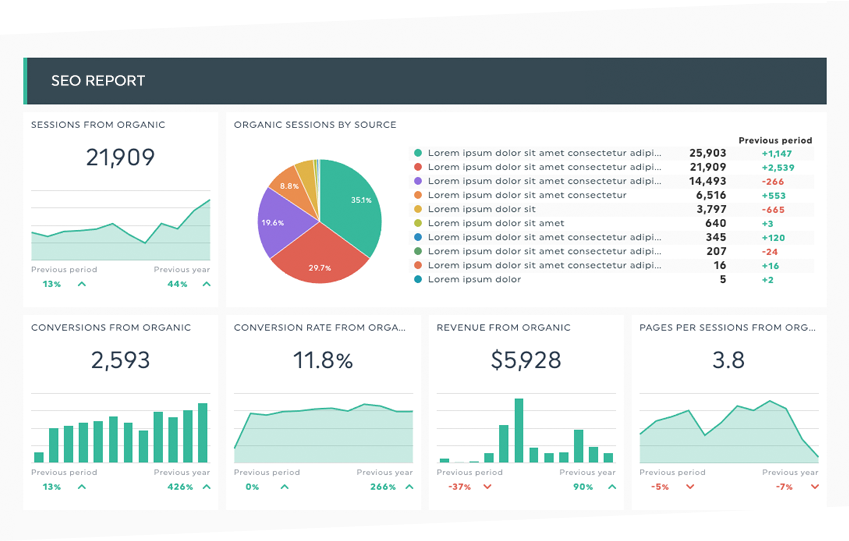
SEO is a long term strategy that can not only take time, but tremendous effort, something you’ll understand more deeply through quality digital marketing training. Which is why it’s crucial to track it properly and not waste time on SEO strategies that aren’t going to work. You need to know where your traffic is coming from, what they searched, and if they converted. An SEO marketing dashboard will give you everything you need to know about your SEO efforts so that you can optimize and adjust accordingly.
Most useful KPIs to use:
With these digital marketing dashboards, you should be all set to optimize your campaigns, save time, and get a better return on investment! So what are you waiting for? Start creating your own digital marketing dashboards right now!
Darren is a content/SEO writer and product marketer. He doubled search traffic for the blog and put ReferralCandy on the front page of the Shopify AppStore.
Grow your sales at a ridiculously
lower CAC.